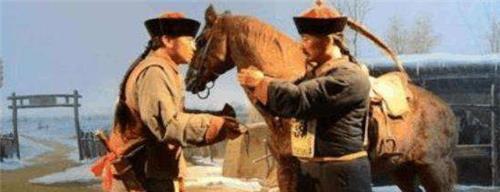Ancient communication is not very developed, a message transmission often takes a long time, spend a lot of manpower and material resources, and on the road is also very likely to encounter a variety of risks, in order to be able to transmit the message as soon as possible and accurately, the ancient Chinese way of information transmission, in fact, has been in the evolution and upgrading, the earliest one is called beacon smoke transmission.

As early as the Western Zhou Dynasty, beacon smoke has been used as an important carrier of information transmission, widely used in people's lives, the state will set up lookouts at intervals along the border line, once there is a foreign invasion, these lookouts will be lit one by one, so that other princely states can also quickly know this news, can be in the fastest time, organize the army to fight against foreign enemies.
There is also a very famous story about the beacon letter, that is, the King of Zhou You, in order to win a smile from his beloved girl, lit the beacon tower many times, and looked at the princes who rushed to come with a large army, from a look of panic to a blank face and turned into a full of anger, and felt funny, so he laughed, which made king Zhou You feel very happy.
So King Zhou You, again and again, lit a beacon fire, the first two times there were princes with large armies, but after being teased twice, no one paid attention to the beacon of King Zhou You, and when he was really attacked, no one came to the rescue, and Western Zhou perished.
This method of conveying information through beacons continued to be used for many years, such as Guan Yu once set up a lot of beacons in Jingzhou during the Three Kingdoms period. However, with the development of society, the way of information transmission has also undergone more changes, and there have been "flying pigeons passing on books" and "fast horses passing on books".
However, because the flying pigeon book is more prone to accidents, so people will still choose to pass on some important information, and thus a special "stagecoach fast horse" was born, usually every 30 miles will set up a post, by the local county order to be responsible, the station's pawn is usually mainly to maintain the stagecoach, entertain past officials and messengers.
One after another caravanserai, forming a huge empire's information transmission network, usually, these stations in the transmission of information is the speed of "three hundred miles a day", but if the information is very important, then this speed will also be improved, according to the degree of importance, it can be divided into "four hundred miles a day, five hundred miles a day, six hundred miles a day" and so on.
The highest level of travel speed is "eight hundred miles a day", usually can use the level of information of "eight hundred miles a day", basically there are major events such as rebellion, in ancient times, there were not a few times in total, the most famous is the Tang Dynasty, the news of an Lushan rebellion at the speed of "eight hundred miles a day", in six days it reached the ears of Tang Xuanzong thousands of miles away, and dozens of horses and several messengers died along the way.
When people use "eight hundred miles a day" to convey information, in order to be able to be as fast as possible, will reduce all the weight that can be reduced, naturally will not bring weapons or something, it can be said that the real unarmed, but why are they not afraid of robbery, because robbers are also intelligent, although they have become robbers have long been not afraid of death, but for the whole people to find death, who dares to do it?
After all, the information of "eight hundred miles of urgency" is that no one dares to delay, otherwise the messenger will not run to his death without stopping, if it is because he was robbed by robbers, and the information was not transmitted in time, and even led to the failure of the war, the messenger is inevitably dead, these robbers who dare to rob will also be fiercely retaliated against by the government, and it is inevitable to raid the family and exterminate the clan.
So how did the robbers tell that this was an "eight-hundred-mile rush"? Mainly because these messengers will carry a very special waist plate with them, and seeing this waist plate, the robbers can identify the identity of the messenger, and naturally they dare not act rashly.